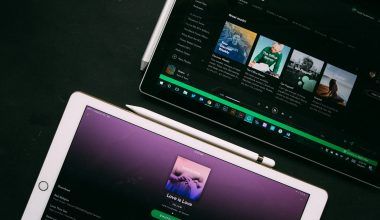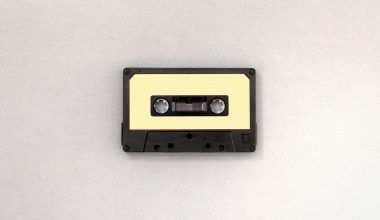Have you ever wondered what a publisher music definition does or what “publisher music” even means? You’re not alone! Music publishing can feel like a complex world, but it’s actually simpler than it seems. Let’s break it down and explore everything you need to know about music publishers, their role, and how they help bring your favorite songs to life.
In the music industry, a publisher music definition is someone (or a company) that works to ensure songwriters and composers get paid for their work. Essentially, they manage the rights to songs and make sure the creators receive royalties whenever their music is used. Think of them as the behind-the-scenes superheroes of the music world, helping both artists and businesses.
Why Do Music Publishers Matter?
Music publishers play a vital role in the industry, but why are they so important? First, they help protect the rights of songwriters. Without music publishers, creators would have to handle all the legal and financial details on their own. This could quickly become overwhelming, especially for artists who want to focus on their craft.
Publishers also ensure that music is being used legally. For example, if a song is played on the radio, used in a movie, or streamed online, the publisher works to make sure the artist gets paid. They connect songwriters with opportunities to get their music heard and make money from it. Pretty important, right?
What Does a Music Publisher Actually Do?
Now that we know why music publishers are essential, let’s talk about what they actually do. Here are some key responsibilities of a music publisher:
- Licensing Music: Publishers grant permission for others to use songs. This could be in films, commercials, TV shows, video games, or even YouTube videos.
- Collecting Royalties: They ensure that songwriters get paid whenever their music is performed, streamed, or sold. Royalties come from various sources, including radio play, streaming platforms, and public performances.
- Promoting Songs: Music publishers actively pitch songs to artists, labels, and media outlets. This helps increase the chances of a song being used and earning money.
- Protecting Copyrights: They monitor the use of songs to prevent unauthorized usage and take action if someone uses a song without permission.
- Supporting Songwriters: Publishers often provide resources like co-writing opportunities, studio time, or financial advances to help songwriters thrive.
Types of Royalties in Music Publishing
When we talk about royalties, it’s essential to understand the different types. Music publishers work with several kinds of royalties to make sure artists get paid. Here are the main ones:
1. Performance Royalties
These are paid when a song is played in public. This includes concerts, radio, TV broadcasts, and streaming services. Performance royalties are usually collected by organizations like ASCAP or BMI in the United States.
2. Mechanical Royalties
Mechanical royalties are paid when a song is reproduced. This can happen when a song is streamed, downloaded, or sold on a physical medium like vinyl or CDs.
3. Sync Licensing Fees
If a song is used in a film, TV show, commercial, or video game, the publisher negotiates a synchronization license. The songwriter earns money from these sync fees.
4. Print Royalties
These royalties are earned when sheet music is sold. While it’s a smaller part of the industry today, it’s still relevant for some musicians.
How to Work with a Music Publisher
If you’re a songwriter or composer, working with a music publisher can be a game-changer. But how do you get started? Here are some tips:
1. Build a Strong Portfolio
Before approaching a music publisher, make sure you have a collection of well-produced songs. Publishers are more likely to work with artists who have a solid body of work.
2. Network in the Industry
Attending music events, workshops, and conferences can help you connect with publishers. Building relationships is key to getting your foot in the door.
3. Research Potential Publishers
Not all publishers are the same. Some specialize in specific genres, while others work with certain types of artists. Find a publisher that aligns with your style and goals.
4. Submit Your Music
Many publishers accept submissions through their websites. Be sure to follow their guidelines and include your best work.
5. Understand the Contract
If a publisher offers you a deal, take the time to understand the terms. You may want to consult with a lawyer or someone knowledgeable in music law to ensure it’s a fair agreement.
Common Misconceptions About Music Publishing
Music publishing is often misunderstood. Let’s clear up some common myths:
Myth 1: Music Publishers Own Your Songs
This isn’t true! In most cases, publishers don’t own the songs. Instead, they manage the rights and ensure you get paid. However, contracts vary, so it’s essential to read the fine print.
Myth 2: Only Famous Artists Need Publishers
Even emerging artists can benefit from music publishing. Publishers can help you grow your career by connecting you with opportunities you might not find on your own.
Myth 3: Publishers Take All Your Money
Publishers typically take a percentage of the royalties, but the split is negotiated in the contract. They’re not there to take everything—they earn money when you do.
The Evolution of Music Publishing
The world of music publishing has changed a lot over the years. In the past, it was all about selling sheet music. Today, it’s more about managing digital rights and streaming royalties. As technology evolves, so does the role of the music publisher.
For example, platforms like Spotify and YouTube have created new revenue streams for artists. Publishers now work with these platforms to ensure that songwriters get paid. The industry continues to adapt to the digital age, making it an exciting time for music creators.
Why Understanding Music Publishing Matters
Whether you’re a musician, a music enthusiast, or someone curious about the industry, understanding music publishing is crucial. It’s the backbone of the music business, ensuring that creators are rewarded for their hard work.
Knowing how publishers operate can also help you make informed decisions, whether you’re signing a contract, using music in your projects, or simply supporting your favorite artists.
Final Thoughts on Publisher Music
publisher music definition might seem complicated, but at its core, it’s about protecting artists and ensuring they get paid for their creativity. publisher music definition handle the legal and financial side of things so that songwriters can focus on making amazing music.
Whether you’re an artist looking to work with a publisher or just someone who loves music, understanding publisher music can give you a new appreciation for the songs you enjoy every day. So next time you hear your favorite tune, remember the publishers working behind the scenes to make it all possible.
Related Articles:
For further reading, explore these related articles:
- Understanding the Beautiful Lyrics of “Always Remember Us This Way” by Lady Gaga
- “Got My Mind Set on You” by George Harrison: A Story of Love, Determination, and Music
For additional resources on music marketing and distribution, visit DMT RECORDS PRIVATE LIMITED






